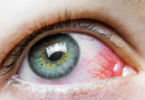A person laughs at a funeral and everyone looks at him badly. Why do you do that? Perhaps the reason is that he suffers from parathymia, an affective disorder that has causes that we will reveal.

Laughing at a funeral or when a friend expresses his distress because a very dear relative has a terminal illness should make us suspect of parathymia. This is an affective disorder or disorder that a person suffers when he experiences inadequate feelings in a specific situation.
But this does not mean that he is not sad when he laughs at a funeral, as in the example given. It only shows that what is thought and what is expressed are two very different things from each other.
We should not confuse parathymia with emotional indifference. In the first, emotions are felt, but are unable to express them in an adequate way. The same does not happen with emotional indifference, in which they are not felt or able to express any type of emotion or feeling.
Types of parathymia
So that we can better understand this affective disorder we must talk about the 3 types that exist. It is important to differentiate them, since they can be confused with each other.
Although they have parts where they coincide, they also have differences. For this reason, we are going to look at each one separately.
1. Paratymy
This first type is the one we have referred to so far in a very general way. When the person experiences it, he is unable to express an emotion that agrees with what he is feeling.
They are emotions that confuse those around them because they do not match what they are feeling. It is as if something does not work well; Like there’s a disconnect.

The expression of emotions follows a process that is altered in parathymia, so there is confusion among those around.
2. Positive parathymy
A second type is positive parathymia. When a person experiences this they are in a state of hyperactivity and euphoria.
This state is maintained over time and this is what differentiates it from the manic phase in bipolar disorder. In this affective disorder the state of euphoria can be prolonged and confuse those around.
3. Negative parathymy
The third type of this affective disorder is negative parathymia. In this case the opposite happens than in the previous one.
The person expresses a state of sadness that lasts for a long time. We could also compare it to the depressive phase of bipolar disorder. But the person can feel happy or be happy, being unable to express it. The only thing that manifests is a great sadness, a melancholy that cannot be undone.
What are the causes of parathymia?
There are different causes that can cause this disorder to appear. The most common is schizophrenia, a type of dementia. It can also arise after a blow or head injury that causes brain damage.
What other causes can there be? Well, there is a mood disorder, such as bipolar, which we have already mentioned to compare positive and negative parathymia. In fact, this makes us think that this affective disorder rarely appears alone.
Symptoms of parathymia
The symptoms of this affective disorder could be grouped into one: the inability to express what one is really thinking or feeling. The people around are surprised and scared, since they do not understand why people cry at a birthday party or laugh at a funeral.
It is something that puzzles, that collides with cultural knowledge. It also causes discomfort and frustration in the person himself.
Patients with parathymia cannot control the way they express what they think or feel. This causes, not only that others reject them, but that they end up rejecting themselves. The situation leads to isolation, not feeling worthy of being with others. Self-esteem suffers.
Some examples
We have given several examples of parathymia, but we believe it necessary to emphasize some more so that it is clear what this disorder implies. It is true that it is not common to meet people who suffer from affective disorder, but knowing the symptoms and what it causes in them will help us understand them in the event that we are witnesses:
A smiling person expresses that he is suffering a lot in her life.
Someone tells that he has terminal cancer and laughs.
Great sadness is expressed when someone says that he loves them very much.
At your own wedding you can show desolation, sadness, crying.

Understanding that these patients do not have the ability to correctly express what they feel generates empathy. It is important that they are not isolated.
How can it be treated?
The most appropriate treatment for parathymia is pharmacological. Antipsychotics, antidepressants, and anxiolytics are prescribed.
But this alone is not going to be enough. The pharmacological approach must be accompanied by therapy to emotionally educate the person suffering from parathymia. Thus, you will also learn certain strategies to express what you are feeling.
The causes must also be taken into account. Brain damage, if it has a good prognosis, may not require drugs. For this reason, we insist on how important it is to understand this disorder.
If you have schizophrenia or a personality disorder, we still need to understand more about what is happening to you. There are many disorders that are still in the shadows. Bringing them out will allow us to be more understanding with others.





